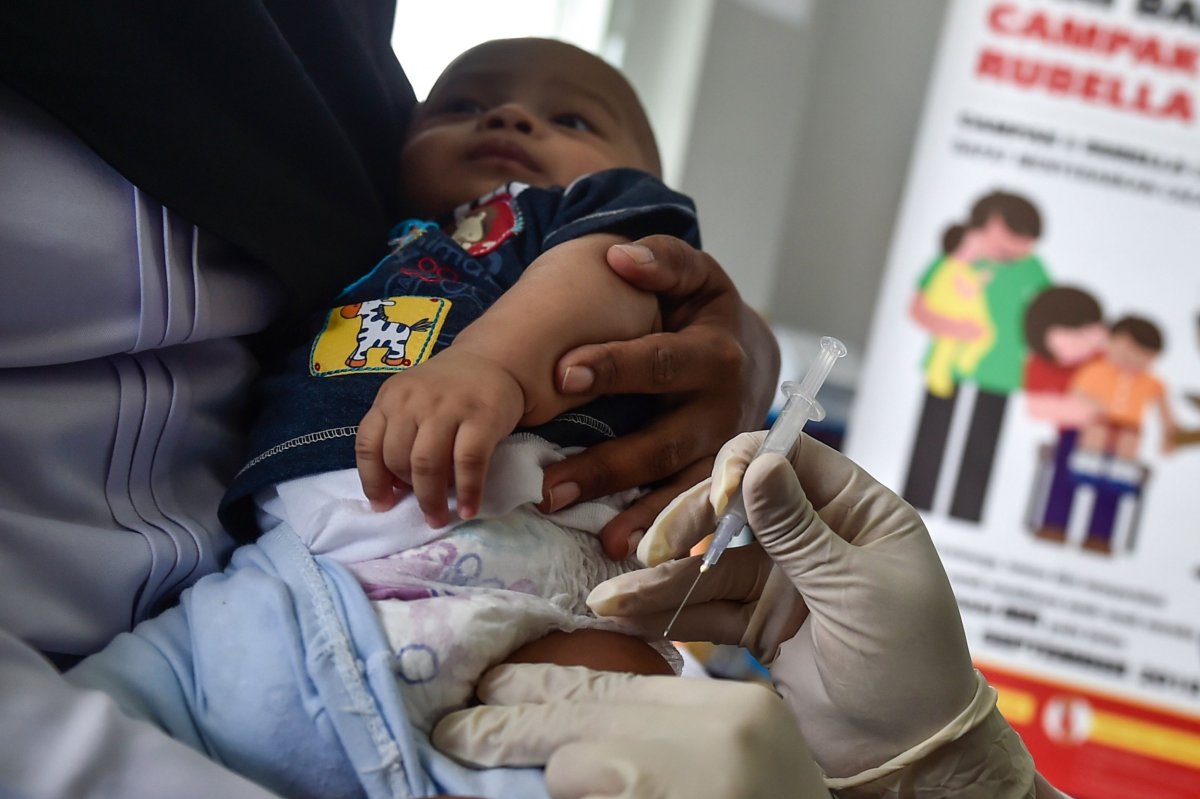An ongoing measles outbreak in the Philippines has killed at least 70 people in the past month, with anti-vax conspiracy theorists blamed for a fall in the rate of protected children.
According to The Guardian, the majority of the recent victims are children. They are among 4,302 measles cases reported in January nationwide, an increase of 122 percent compared with the same period in 2018.
Infections have been reported in some of the poorest and most densely-populated regions of the country including Metro Manila, which is home to 12 million people. In January, 196 cases were reported in the city, compared with just 20 in January 2017. Fifty-five children under the age of 4 in Manila have already died from measles infections in 2019.
The government has declared other so-called "red alert" outbreaks in the northern region of Luzon and the Visayas archipelago. Of the 70 who have died from measles since the start of 2019, 79 percent were not vaccinated, according to Rappler citing Department of Health figures.
Health Secretary Francisco Duque issued a statement explaining the government is officially "declaring an outbreak as cases have increased in the past weeks and to strengthen surveillance of new cases and alert mothers and caregivers to be more vigilant."
A highly infectious disease, measles can cause complications such as brain infections, severe diarrhea and dehydration, pneumonia and ear infections and even death. Even those that survive an infection can be left with lifelong disabilities including blindness, deafness and brain damage.
The World Health Organization notes population immunity can be achieved if 95 percent of people is vaccinated, but the rate of immunization in the Philippines has fallen to just 55 percent—a reduction of 15 percent in the past year.
The plummeting immunization rate has been blamed on the anti-vax movement, which has made some parents afraid of vaccinating their children. In early 2018, for example, a scandal around a dengue fever vaccination erupted following unproven allegations that the jab made child recipients more likely to fall ill and die.
But hesitation over vaccinations has allowed infectious diseases like measles to run rampant. According to the WHO, there were more than 20,000 reported measles cases in the Philippines as of December 2018—a 500 percent increase on the previous year.
The WHO has also warned that measles cases are on the rise worldwide as anti-vax conspiracy theories spread in Europe and North America. Since 2016, there has been a 30 percent increase in the number of measles cases globally.

Uncommon Knowledge
Newsweek is committed to challenging conventional wisdom and finding connections in the search for common ground.
Newsweek is committed to challenging conventional wisdom and finding connections in the search for common ground.
About the writer
David Brennan is Newsweek's Diplomatic Correspondent covering world politics and conflicts from London with a focus on NATO, the European ... Read more
To read how Newsweek uses AI as a newsroom tool, Click here.








